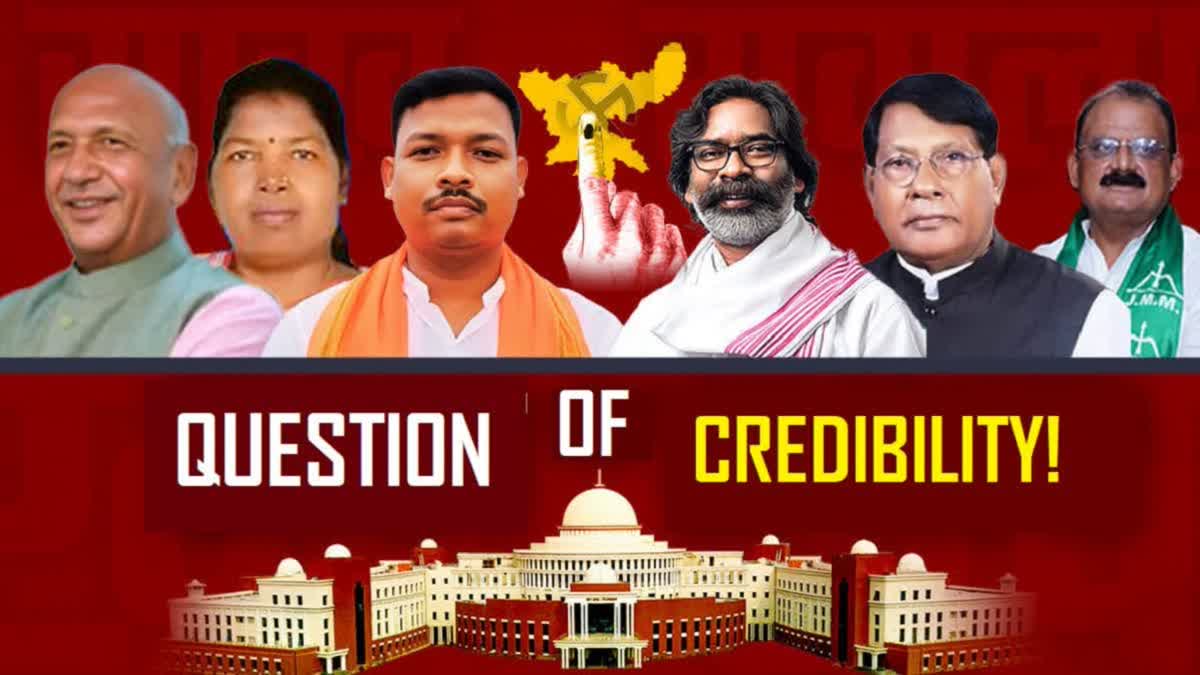It was July earlier this year and the Parliament's Monsoon Session was on. It drizzled lightly in Ranchi on July 25, but in Delhi allegations were raining hard in the Lok Sabha, which eventually set the tone for Jharkhand's Assembly elections.
Nishikant Dubey, a four-term MP from the Godda constituency of Jharkhand stood up in the Lok Sabha to tell the members that tribal population in Jharkhand had shrunk by 10 per cent in the Santhal Pargana alone over the past 24 years. Dubey blamed the decline to the influx of 'Bangladeshi infiltrators' and said the tribal population of Santhal Pargana, which was around 36 per cent in 2000, has now reduced to 26 per cent. Cornering the Jharkhand Mukti Morcha (JMM) ruled government in Jharkhand for the shrink, the Parliamentarian said, illegal immigrants from Bangladesh were marrying women from the tribal community resulting in shrinking of their numbers and the government was on mute mode.
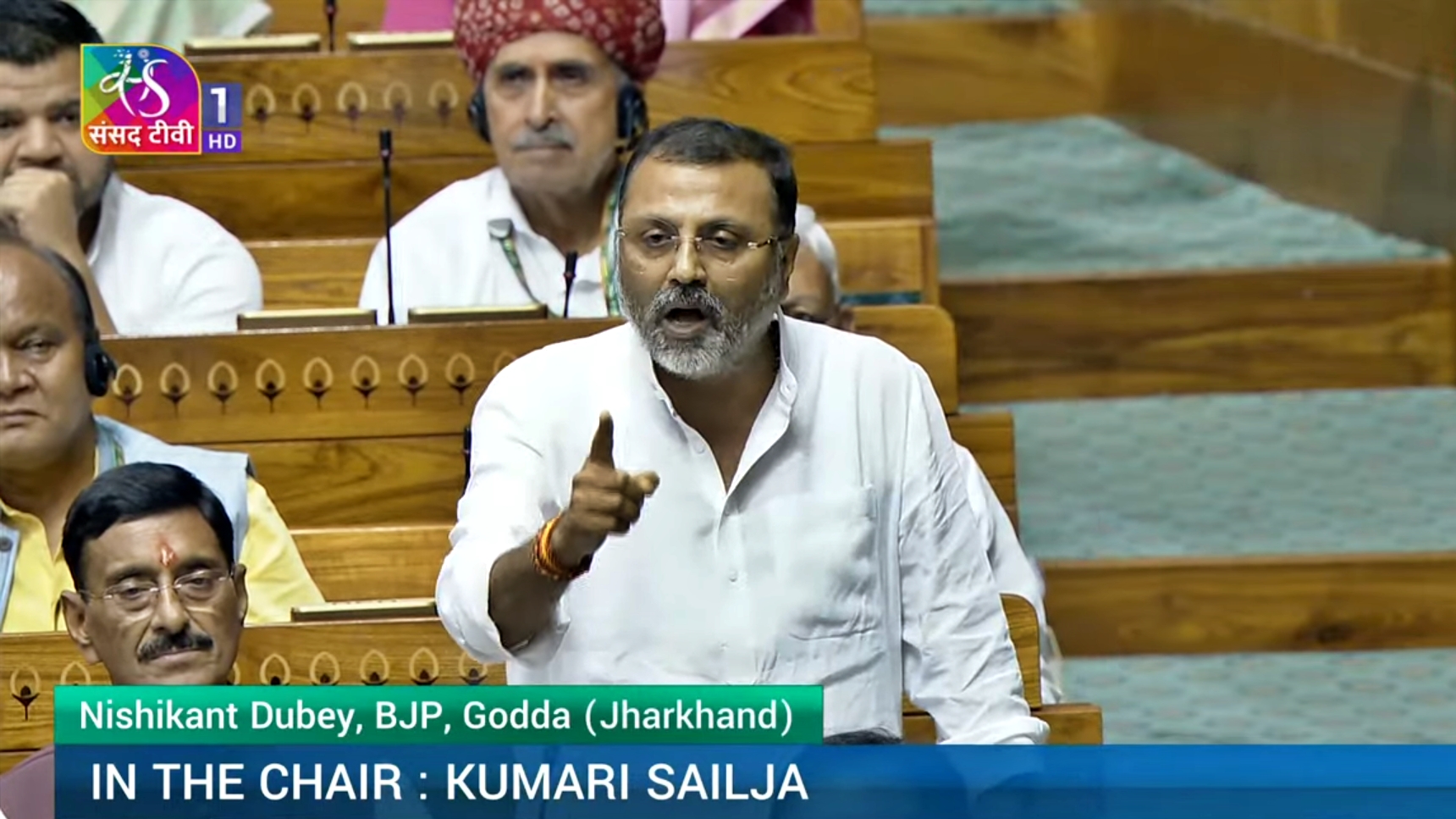
What Nishkant did not say was, as per the 2011 census, Jharkhand had around 86 lakh tribal population or around 26.2 per cent of the state's then population. And when the question of outbound migration figures of Jharkhand are considered, the numbers stand at a staggering 18.66 per cent of tribals, much higher than its neighbouring Chhattisgarh and Odisha. This significant percentage of migratory outflow of tribal population, surely has a direct impact on Jharkhand's demographic change.
What Nishikant did indicate was, the BJP's main campaign plank in the Jharkhand Assembly elections of November will be 'Ghuspaithi' (illegal immigrants). Added to that will be the underlying factor of disintegrating the tribal-muslim voter base of the JMM, riding on which, the homegrown party of Jharkhand has made its electoral fortunes bright. Incidentally, Muslims constitute around 14.5 per cent of Jharkhand population.
For the saffron party, the statistics stare hard at them. Among the heavily tribal-dominated 18 Santhal Pargana Assembly seats, which go to the polls on November 20, BJP had won only four seats in the 2019 elections. Among the 28 Scheduled Tribe-reserved seats, the party at the helm of affairs at the Centre, won only two. This year's general elections were no different. After the votes were counted, it was found that BJP had failed to win any of the five tribal reserved Lok Sabha seats of Jharkhand.
The stats are really painful for a party, which has given the fledgling state its only full-term chief minister! Since Jharkhand was carved out of Bihar in 2000, BJP's Raghubar Das is the only person to complete his tenure.
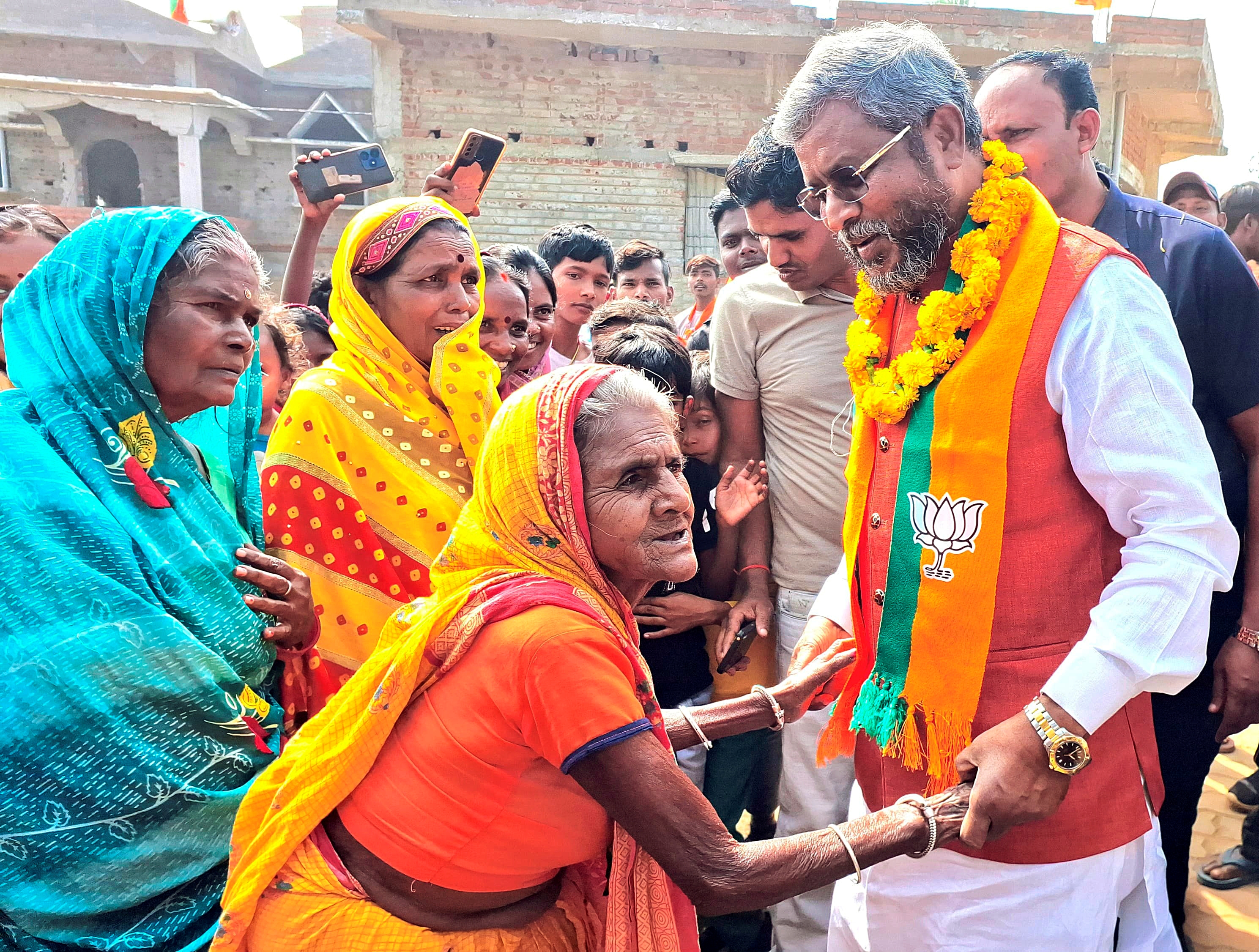
Babulal Marandi, BJP's tribal face was chosen to lead the coalition government in 2000, but infighting within the party and partners forced him to make way for Arjun Munda in 2003, before he could complete his term. In the state's first Assembly elections in 2005, BJP and its allies won but failed to secure a majority. In a bizarre formula stitched between the NDA and the JMM, Shibu Soren, the JMM patriarch became the chief minister, albeit for 10 days. The Soren government fell, only to witness Arjun Munda replacing him. But, Arjun's stay at the chief minister's chair was cut short again by one of the very few independent legislators who ever become a chief minister of any state in the country, Madhu Koda.
Madhu Koda, a consensus candidate became Jharkhand's chief minister in September 2006, only to be unseated by Shibu Soren in August 2008. This time, Soren’s tenure lasted for 145 days. Interestingly, on both occasions that Shibu Soren became the state’s chief minister, he could not seek the people's mandate, which he had to get within a span of six months.
Soren’s tenure was cut short after he lost the numbers and Jharkhand witnessed its first President’s Rule in January 2009. Eventually, the state saw two more terms of President’s Rule in 2010 and 2013 and in between, Shibu and Arjun Munda, both got one more shot each at the chief minister’s chair.
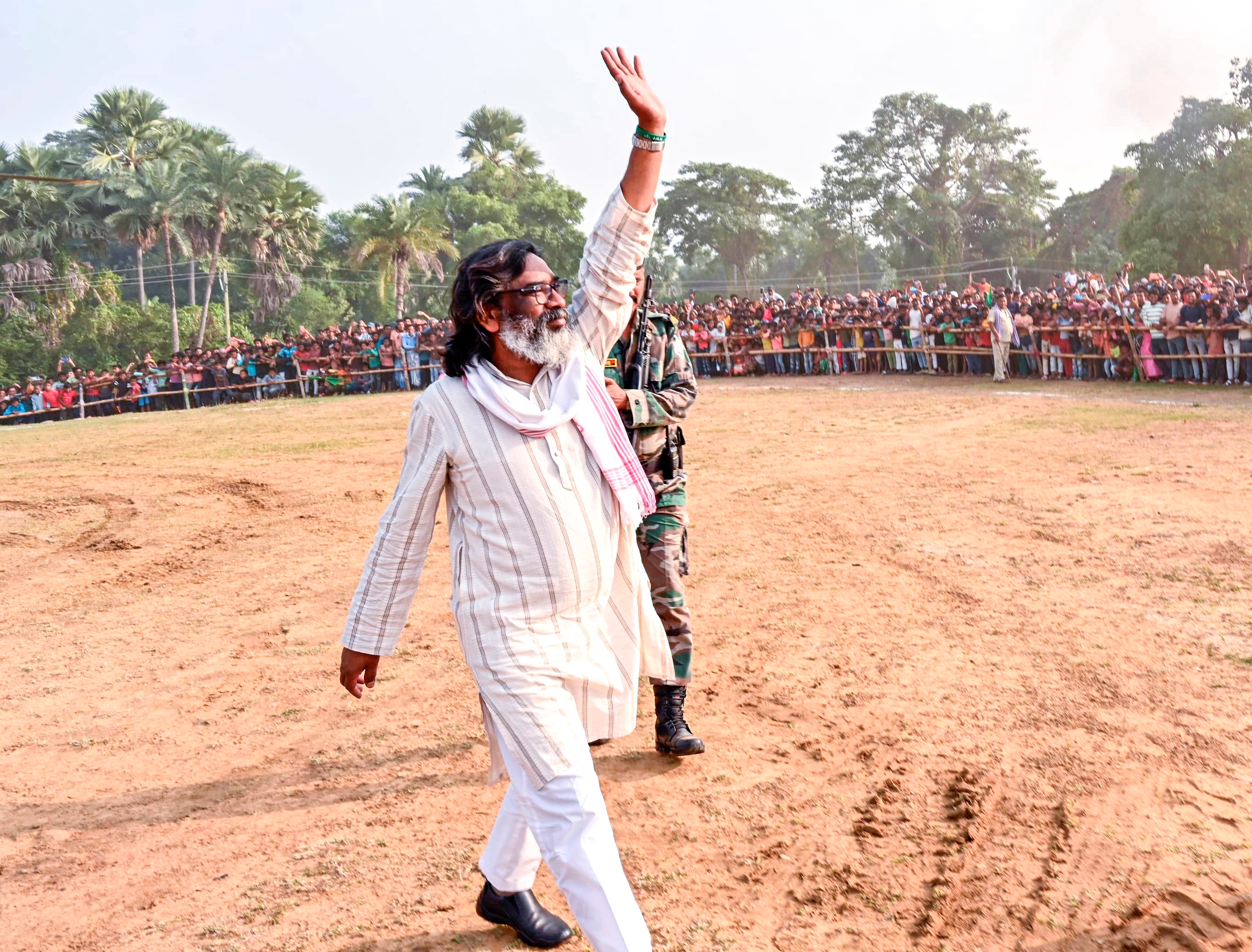
Finally, after a brief stint at the helm by Shibu Soren’s younger son Hemant, BJP got a full term chief minister in the name of Raghubar Das in 2014. In the next Assembly elections, JMM returned to power along with the Congress in 2019 and with Hemant as the chief minister. Again, Hemant could not complete his tenure as it was cut short after his arrest in a land grab case. JMM’s trusted lieutenant Champai Soren, dubbed as the Kolhan Tiger for his charismatic presence in the Kolhan region, replaced Hemant earlier this year. But, once Hemant was out of jail, Champai was shown the door. A ‘disillusioned’ and ‘angry’ Champai licked his wounds and switched sides to the BJP.
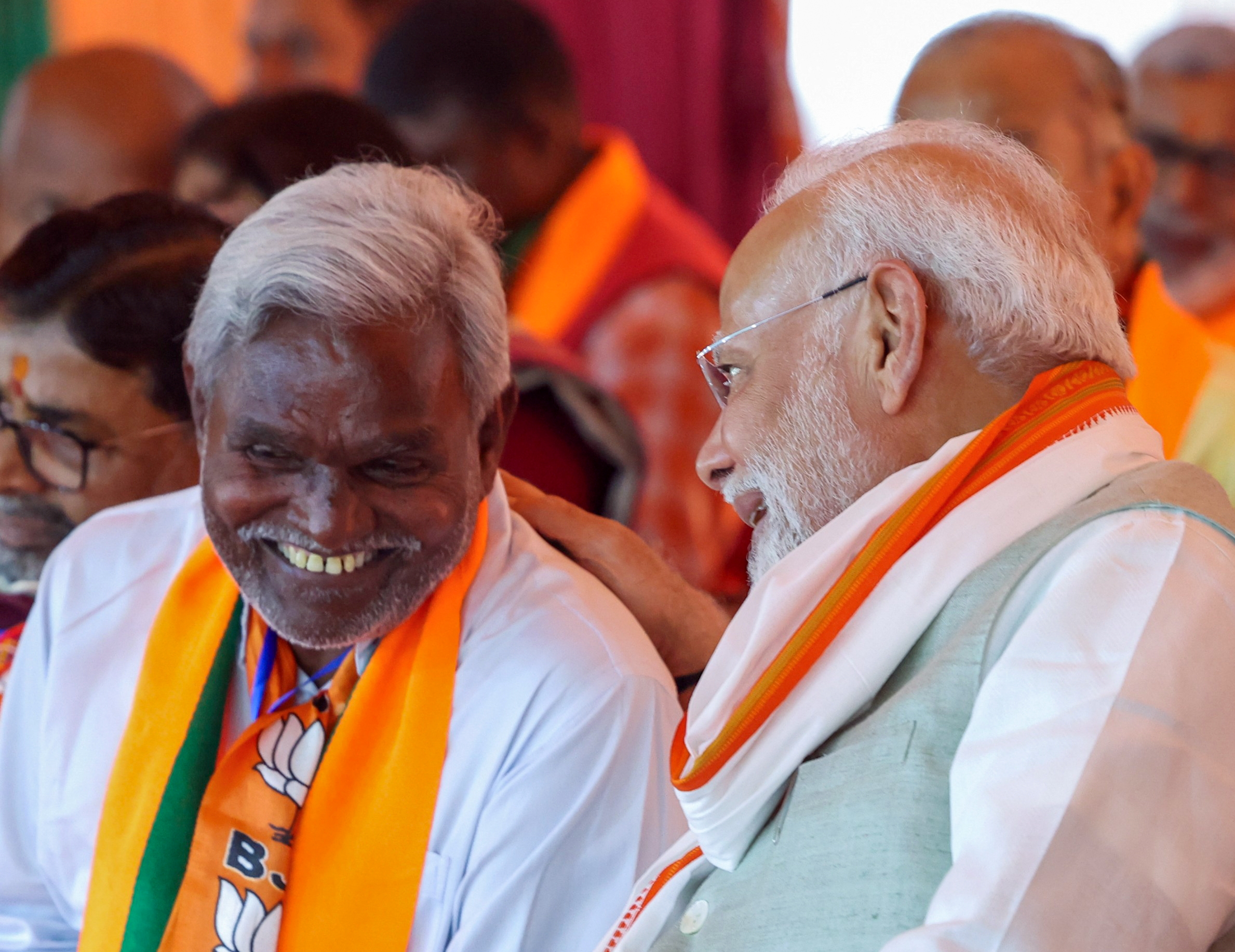
It is pertinent to understand the swing-song politics of Jharkhand because it is probably the only state in India, where it is relatively easy to become a chief minister, but very difficult to hold on to it! And from BJP to JMM to Congress – everyone knows it by heart.
Hence, amid all the issues of price rise, lack of jobs, examination paper leaks, lack of proper educational facilities, unsolved issues of tribal land rights, deep-rooted corruption in the mining belts of Dhanbad, Bokaro or Manoharpur, water scarcity or migration of tribals, the issue of illegal immigrants is ruling the roost, adequately pumped up by campaigning heavyweights of the BJP like Prime Minister Modi, Union Home Minister Amit Shah or the chief ministers of Uttar Pradesh and Assam, Yogi Adityanath and Himanta Biswa Sarma, respectively.
Adding to the binary of the BJP-AJSU and JMM-Congress is a third entity, that of Jairam Mahato’s Jharkhand Loktantrik Krantikari Morcha (JKLM). Jairam is young and has created quite a buzz among the aspiring youth of Jharkhand, this election.
But, entry of a third entity is not new to the state. Babulal Marandi, who has been re-inducted into the BJP fold and on whom the BJP is banking heavily this time to woo the tribal votes, had severed ties with the saffron party and floated the Jharkhand Vikas Morcha (Prajatantrik) back in 2006.
The experience was not sweet for Marandi in the electoral fields as he failed to make any significant mark and only to merge with his political alma mater. What holds for Jairam and his JKLM, will be interesting to see, more so if he makes any dent in the Rajmahal and Pakur areas.
Who will Jairam eat into? The BJP or the JMM? Or will he turn out to be just fizz in Jharkhand’s bottled up politics? The answers are blowing in the wind. When the votes are counted on November 23, Jharkhand will eagerly wait to see if it gets its second full-term chief minister. And, it will also wait to find out that without any international borders wherefrom infiltration happens, will the raked up issue of illegal immigration hold any water or, the JMM manages to keep its tribal vote bank bolted up.
